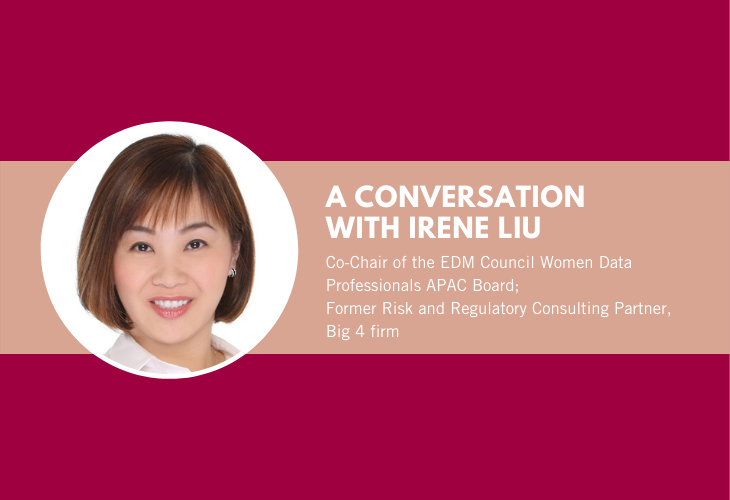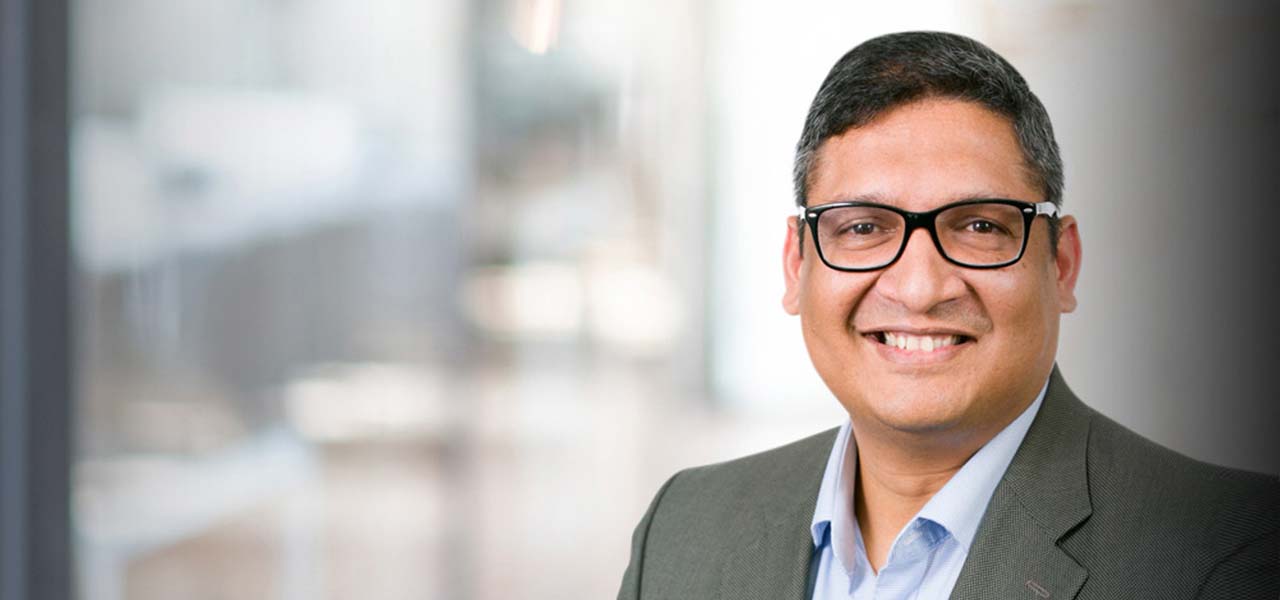SMU is known for and takes pride in its innovative curriculum and interactive teaching pedagogy which aims to engage students in meaningful learning. One of the ways we keep our curriculum innovative and up to date is through constant evaluations from industry and student feedback and fine-tuning our electives when needed.
At SMU Accounting Masters, to ensure our graduates stay ahead of the curve, we introduce electives that will equip our students with critical skillsets so that they are poised to provide value in their professional roles. With data governance being integral to the strategic direction of any business, one of the latest electives introduced to the MSA curriculum is Data Governance and Quality.
We speak to Ms. Irene Liu, a former Risk and Regulatory Consulting Partner from a Big 4 firm who will be teaching this elective for our AY2021 intake. Irene who is passionate about driving enhancements to the regulatory and finance areas also sits on the Singapore Management University, School of Accountancy’s Data and Analytics Board (DAAB) - which was founded to provide strategic advice to the school as well as enable the school to enhance the quality of its education, research, and community engagement efforts. As Board Chair of a children's charity organisation, we see Irene equally passionate about contributing back to society in various means.
Irene is also no stranger to the data governance world. She is the co-Chair of the EDM Council Women Data Professionals APAC Board, a global organisation that advances data standards and best practices. She has issued multiple thought leadership articles over the years on various regulatory and data governance-related topics, making her an ideal educator who will bring with her industry-centric knowledge and skills which will give our students an edge in the workplace and further elevate them in new and empowering ways.
We speak with Irene on her journey and pursuits as well as her take on this dynamic industry, and the skills and values she believes will be essential in shaping the next generation of finance and accounting professionals.
Hello Irene, can you share why you chose this career path?
I am an Accountant by training, and I chose to be a consultant in the finance, regulatory and data space. The finance training provides a good understanding of controls, adherence to requirements, and the necessity for good quality data that will form the essentials of good reporting. There are many possibilities that lead to the same outcome, and my passion lies in discovering the best-suited possibilities in each context and to individual constraints. Hence, I chose to be a consultant.
As you will be teaching the Data Governance and Quality course, what learning outcomes can students expect?
As Accounting professionals, we benefit from strong governance over the entire chain from data collection through to report generation. It enables good quality financial reporting and is the key enabler of good financial analytics for business partnering. The Data Governance and Quality course aims to provide the MSA students with a good grasp of the data lineage activities, controls and concepts that enable good data quality. Students also walk away with a detailed understanding of data quality, how to measure it, what contributes to poor data quality and how to remediate these effectively. Students are also enabled with a working knowledge of the tools and trends on data management so that they may deploy these within their own organisations upon graduation.
As a member of the SMU SOA Data Analytics Advisory Board, amongst others. Why is it vital for you to support this sector?
I find it important that as a consultant, I am at the forefront of understanding the latest trends, challenges and have the privilege to foresee what is to come given our connections to businesses and regulators. As such, I see an impeccable need to drive the sector to be prepared for the change in order to support the business.
Where do you see the accounting industry and financial services in general in five years’ time?
The normal day-to-day bookkeeping work will be taken over either by cheaper resources outside of Singapore or taken over by bots. Most of the people who need financial insights can use a real-time self-service function to suit their needs. The detective controls performed by Accountants will be diminished with the pervasiveness of more preventive automated controls augmented by Artificial Intelligence and Machine Learning. These developments will challenge the value an Accountant can bring. Hence, Accountants will develop to be strategic business partners to improve risk decisioning, pricing strategy and negotiations, and drive business directions.
Apart from accounting and business domain skills, what other skill sets do you think are crucial for our students to have to excel in the workplace?
Apart from accounting and business skills, to excel, one would also need to have strong communication and presentation skills to be able to present your thoughts clearly and convincingly, and a good understanding of the latest technology trends and tools to understand how best to exploit these to help us in our work.
What would be your advice for the next generation of accountants?
Do not stay within the confines of what you have learnt in school. Have a voracious learning appetite, meet people, be engaged in professional and business associations, step out to have a hands-on understanding of how your business works. Learn about technology, learn about business strategy, learn about marketing, learn about data and analytics, learn about AI and cloud. Form a view of how your profession and your current roles and responsibilities will evolve. Think at least 3-5 years forward at any point in time.
Name one of your biggest challenges so far, and how you overcame it?
The biggest challenges are the ever-changing landscape, and the continuous need to learn and to adapt. To achieve the increasingly demanding and complex need for reports and analysis with far less time and greater accuracy, and cope with a likewise increasingly complex technology landscape. How I overcame these challenges were through continuous learning, sharing with and learning from industry practitioners, and being actively involved in industry associations that advocate best practices. I also invest a part of my personal savings to take relevant courses to continuously upskill myself.
What is your philosophy or guiding principles in your life?
My main philosophy in life is to learn, unlearn and relearn. Even more importantly, as Accountants who are the bearers of integrity in any organisation, we must live by our values of integrity, truthfulness, and due care, not just in our work but in our daily lives and how we treat others too.
What do you want to be remembered for?
The accounting profession has been one where others outside of our profession view us to be historians and bookkeepers. I am definitely not one! I want to use knowledge from past records and experiences to make better decisions on the way forward and to challenge yesterday's boundaries. So, I want to be remembered as someone who is adaptable to change and courageous in breaking frontiers.
##
Get up close with Irene and our panel of industry speakers and regulators as they discuss FinTech and RegTech and what it means beyond being a mere buzzword - what opportunities there are, the lingering issues, data sharing considerations and benefits and what these mean for local talents at our Conference on Digital Transformation of Financial Markets on Friday, 8 October at 4pm (SGT). Register for the event here.
For more information on SMU Accounting Masters, click here. SMU Accounting Masters organises regular online events such as Masterclasses and Industry talks on exciting developments and topics in the accounting & finance domain by our esteemed faculty and industry partners. Do look out for our upcoming events here.





